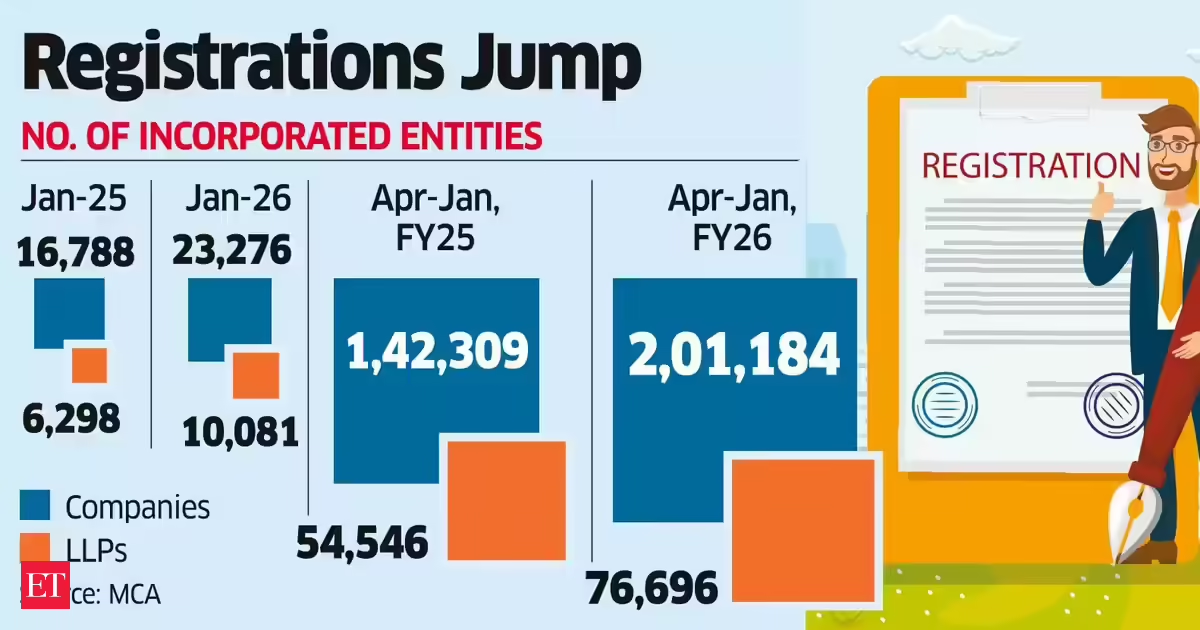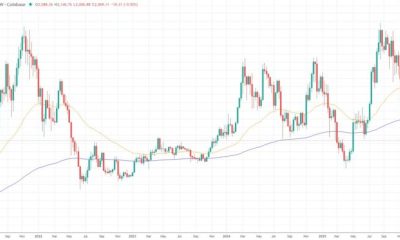Tech
AI Boom Fuels DRAM Shortage and Price Surge

If it feels these days as if everything in technology is about AI, that’s because it is. And nowhere is that more true than in the market for computer memory. Demand, and profitability, for the type of DRAM used to feed GPUs and other accelerators in AI data centers is so huge that it’s diverting away supply of memory for other uses and causing prices to skyrocket. According to Counterpoint Research, DRAM prices have risen 80-90 precent so far this quarter.
The largest AI hardware companies say they have secured their chips out as far as 2028, but that leaves everybody else—makers of PCs, consumer gizmos, and everything else that needs to temporarily store a billion bits—scrambling to deal with scarce supply and inflated prices.
How did the electronics industry get into this mess, and more importantly, how will it get out? IEEE Spectrum asked economists and memory experts to explain. They say today’s situation is the result of a collision between the DRAM industry’s historic boom and bust cycle and an AI hardware infrastructure build-out that’s without precedent in its scale. And, barring some major collapse in the AI sector, it will take years for new capacity and new technology to bring supply in line with demand. Prices might stay high even then.
To understand both ends of the tale, you need to know the main culprit in the supply and demand swing, high-bandwidth memory, or HBM.
What is HBM?
HBM is the DRAM industry’s attempt to short-circuit the slowing pace of Moore’s Law by using 3D chip packaging technology. Each HBM chip is made up of as many as 12 thinned-down DRAM chips called dies. Each die contains a number of vertical connections called through silicon vias (TSVs). The dies are piled atop each other and connected by arrays of microscopic solder balls aligned to the TSVs. This DRAM tower—well, at about 750 micrometers thick, it’s more of a brutalist office-block than a tower—is then stacked atop what’s called the base die, which shuttles bits between the memory dies and the processor.
This complex piece of technology is then set within a millimeter of a GPU or other AI accelerator, to which it is linked by as many as 2,048 micrometer-scale connections. HBMs are attached on two sides of the processor, and the GPU and memory are packaged together as a single unit.
The idea behind such a tight, highly-connected squeeze with the GPU is to knock down what’s called the memory wall. That’s the barrier in energy and time of bringing the terabytes per second of data needed to run large language models into the GPU. Memory bandwidth is a key limiter to how fast LLMs can run.
As a technology, HBM has been around for more than 10 years, and DRAM makers have been busy boosting its capability.
As the size of AI models has grown, so has HBM’s importance to the GPU. But that’s come at a cost. SemiAnalysis estimates that HBM generally costs three times as much as other types of memory and constitutes 50 percent or more of the cost of the packaged GPU.
Origins of the memory chip shortage
Memory and storage industry watchers agree that DRAM is a highly cyclical industry with huge booms and devastating busts. With new fabs costing US $15 billion or more, firms are extremely reluctant to expand and may only have the cash to do so during boom times, explains Thomas Coughlin, a storage and memory expert and president of Coughlin Associates. But building such a fab and getting it up and running can take 18 months or more, practically ensuring that new capacity arrives well past the initial surge in demand, flooding the market and depressing prices.
The origins of today’s cycle, says Coughlin, go all the way back to the chip supply panic surrounding the COVID-19 pandemic . To avoid supply-chain stumbles and support the rapid shift to remote work, hyperscalers—data center giants like Amazon, Google, and Microsoft—bought up huge inventories of memory and storage, boosting prices, he notes.
But then supply became more regular and data center expansion fell off in 2022, causing memory and storage prices to plummet. This recession continued into 2023, and even resulted in big memory and storage companies such as Samsung cutting production by 50 percent to try and keep prices from going below the costs of manufacturing, says Coughlin. It was a rare and fairly desperate move, because companies typically have to run plants at full capacity just to earn back their value.
After a recovery began in late 2023, “all the memory and storage companies were very wary of increasing their production capacity again,” says Coughlin. “Thus there was little or no investment in new production capacity in 2024 and through most of 2025.”
The AI data center boom
That lack of new investment is colliding headlong with a huge boost in demand from new data centers. Globally, there are nearly 2,000 new data centers either planned or under construction right now, according to Data Center Map. If they’re all built, it would represent a 20 percent jump in the global supply, which stands at around 9,000 facilities now.
If the current build-out continues at pace, McKinsey predicts companies will spend $7 trillion by 2030, with the bulk of that—$5.2 trillion—going to AI-focused data centers. Of that chunk, $3.3 billion will go toward servers, data storage, and network equipment, the firm predicts.
The biggest beneficiary so far of the AI data center boom is unquestionably GPU-maker Nvidia. Revenue for its data center business went from barely a billion in the final quarter of 2019 to $51 billion in the quarter that ended in October 2025. Over this period, its server GPUs have demanded not just more and more gigabytes of DRAM but an increasing number of DRAM chips. The recently released B300 uses eight HBM chips, each of which is a stack of 12 DRAM dies. Competitors’ use of HBM has largely mirrored Nvidia’s. AMD’s MI350 GPU, for example, also uses eight, 12-die chips.
With so much demand, an increasing fraction of the revenue for DRAM makers comes from HBM. Micron—the number three producer behind SK Hynix and Samsung—reported that HBM and other cloud-related memory went from being 17 percent of its DRAM revenue in 2023 to nearly 50 percent in 2025.
Micron predicts the total market for HBM will grow from $35 billion in 2025 to $100 billion by 2028—a figure larger than the entire DRAM market in 2024, CEO Sanjay Mehrotra told analysts in December. It’s reaching that figure two years earlier than Micron had previously expected. Across the industry, demand will outstrip supply “substantially… for the foreseeable future,” he said.
Future DRAM supply and technology
“There are two ways to address supply issues with DRAM: with innovation or with building more fabs,” explains Mina Kim, an economist with the Mkecon Insights. “As DRAM scaling has become more difficult, the industry has turned to advanced packaging… which is just using more DRAM.”
Micron, Samsung, and SK Hynix combined make up the vast majority of the memory and storage markets, and all three have new fabs and facilities in the works. However, these are unlikely to contribute meaningfully to bringing down prices.
Micron is in the process of building an HBM fab in Singapore that should be in production in 2027. And it is retooling a fab it purchased from PSMC in Taiwan that will begin production in the second half of 2027. Last month, Micron broke ground on what will be a DRAM fab complex in Onondaga County, N.Y. It will not be in full production until 2030.
Samsung plans to start producing at a new plant in Pyeongtaek, South Korea in 2028.
SK Hynix is building HBM and packaging facilities in West Lafayette, Indiana set to begin production by the end of 2028, and an HBM fab it’s building in Cheongju should be complete in 2027.
Speaking of his sense of the DRAM market, Intel CEO Lip-Bu Tan told attendees at the Cisco AI Summit last week: “There’s no relief until 2028.”
With these expansions unable to contribute for several years, other factors will be needed to increase supply. “Relief will come from a combination of incremental capacity expansions by existing DRAM leaders, yield improvements in advanced packaging, and a broader diversification of supply chains,” says Shawn DuBravac , chief economist for the Global Electronics Association (formerly the IPC). “New fabs will help at the margin, but the faster gains will come from process learning, better [DRAM] stacking efficiency, and tighter coordination between memory suppliers and AI chip designers.”
So, will prices come down once some of these new plants come on line? Don’t bet on it. “In general, economists find that prices come down much more slowly and reluctantly than they go up. DRAM today is unlikely to be an exception to this general observation, especially given the insatiable demand for compute,” says Kim.
In the meantime, technologies are in the works that could make HBM an even bigger consumer of silicon. The standard for HBM4 can accommodate 16 stacked DRAM dies, even though today’s chips only use 12 dies. Getting to 16 has a lot to do with the chip stacking technology. Conducting heat through the HBM “layer cake” of silicon, solder, and support material is a key limiter to going higher and in repositioning HBM inside the package to get even more bandwidth.
SK Hynix claims a heat conduction advantage through a manufacturing process called advanced MR-MUF (mass reflow molded underfill). Further out, an alternative chip stacking technology called hybrid bonding could help heat conduction by reducing the die-to-die vertical distance essentially to zero. In 2024, researchers at Samsung proved they could produce a 16-high stack with hybrid bonding, and they suggested that 20 dies was not out of reach.
From Your Site Articles
Related Articles Around the Web
Tech
Hubble’s Sharpest Look Yet at a Star’s Final Act in the Egg Nebula


A star almost identical to our sun is nearing the end of its life in the Cygnus constellation, about 1000 light years away. Astronomers call this spectacle the Egg Nebula, or CRL 2688 for short. Hubble’s most recent image provides a magnificent view of this particular object in unprecedented detail, thanks to the combination of new data and previously captured images. What we get is a stunning display of light cutting through the dust.
A star almost identical to our sun is nearing the end of its life in the Cygnus constellation, about 1000 light years away. Astronomers call this spectacle the Egg Nebula, or CRL 2688 for short. Hubble’s most recent image provides a magnificent view of this particular object in unprecedented detail, thanks to the combination of new data and previously captured photographs. What we get is a stunning display of light cutting through the dust.
NASA Lunar Telescope for Kids – 90x Magnification, Includes Two Eyepieces, Tabletop Tripod, and Finder…
- INSPIRE CURIOSITY – The NASA Lunar Telescope allows your child to see the moon in incredible detail; the perfect gift for girls and boys interested…
- HIGH-QUALITY OPTICAL GLASS AND FINDER SCOPE – This easy-to-use telescope comes with a finder scope, low power, and high-power eyepieces; when used…
- TABLETOP TRIPOD & SMOOTH MOUNT SYSTEM – Use the included tripod to steady your Lunar Telescope for optimal viewing, with a smooth mounting system…
The core star is hidden deep in the center, enveloped by a thick cloud of gas and dust that allows very little light to pass through. What does pass through is compressed into two narrow beams of light that sweep outward, revealing the fast-moving clouds of material being ejected from the star. Those clouds glow orange in infrared, adding some color to the image. You can also observe faster-moving clouds of heated molecular hydrogen that light brightly in the infrared, adding depth to the scene.
Over the previous 5000 years, the star has lost its outer layers in large concentric rings of gas. These rings are made up of tiny arcs of gas that accumulate every few hundred years. Now, these rings reflect the star’s light in a fashion that resembles ripples on water – and the dust produced by these outbursts is what shapes the nebula that bears its name, since the dense core is like the yolk of an egg wrapped up in darker, dustier layers.

This is only transient; it will only last a few thousand years. The star has depleted all of its hydrogen and helium fuel, and what remains of its outer layers are floating away, while the center is becoming increasingly hot. Eventually, that center will cause the surrounding gas to glow, similar to the Helix Nebula or Butterfly Nebula. As of now, the Egg Nebula is in its pre-planetary phase, a brief period before winds and radiation begin to obscure the picture.
Hubble first observed the Egg Nebula in 1997, when a picture revealed the hidden light source. In 2003, we were able to get a full picture of the ripple patterns surrounding the nebula, and in 2012, we got an even closer look at the central cloud and outflows. Today’s image combines all of that data with some new frames to provide the sharpest look yet, courtesy of the Wide Field Camera 3.
Tech
MoFi Electronics Introduces UltraPhono Pro: More Affordable High-End MM/MC Phono Preamp

Vinyl isn’t having a moment anymore, it’s entrenched. Turntables are selling, cartridges are backordered, and phono preamps are once again a real battleground instead of an afterthought. With the $2,495 UltraPhono Pro, MoFi Electronics finally fills a very obvious gap in its lineup by bringing much of the sonic DNA of its flagship MasterPhono down to a price point where the fight actually is.
Designed by Peter Madnick and built around the same ultra-low-noise circuit concepts and parts philosophy that made the MasterPhono a serious contender at the top end, the UltraPhono Pro strips away the excess and focuses on what matters: clean gain, flexibility for MM and MC cartridges, and musical accuracy.
Just as importantly, it gives MoFi a credible sub-$2,500 answer to established heavyweights like Pro-Ject, EAR, E.A.T., MOON by Simaudio, Rega, and Musical Fidelity; a segment where serious vinyl listeners actually shop. In short, this is MoFi admitting the obvious: the market below its halo gear is thriving, and now they’re properly in the game.

From MasterPhono to UltraPhono Pro: Flagship Design, Scaled for the Real World
Designed by veteran engineer Peter Madnick, the MoFi Electronics MasterPhono was MoFi’s no-holds-barred statement piece: a fully discrete, all-analog phono preamplifier built to handle literally any MM or MC cartridge on the planet, including ultra-low-impedance moving coils via its current-input architecture. Its dual-chassis design isolates the power supply from the audio circuits to keep noise vanishingly low, while cascaded voltage regulation, passive RIAA with ultra-tight tolerances, and fully balanced DC-coupled circuitry deliver reference-grade accuracy (±0.05 dB RIAA) and serious signal-to-noise performance.
Add extensive front-panel configurability, multiple gain and loading options, balanced and single-ended I/O, metering, remote control, and firmware upgradability, and the $5,000 MasterPhono firmly established MoFi as a serious electronics brand—not just a turntable and cartridge company.
The new MoFi Electronics UltraPhono Pro is a clear and deliberate trickle-down from the MasterPhono’s design philosophy. By stripping away the dual-chassis construction, extreme configurability, and flagship-level excess, MoFi delivers a far more approachable phono stage, at roughly fifty percent less cost, without abandoning the engineering fundamentals that made the MasterPhono credible in the first place. The UltraPhono Pro keeps the focus where it belongs: ultra-low noise, fully discrete analog circuitry, and cartridge flexibility that actually matters to real-world vinyl listeners.

Despite its streamlined approach, the UltraPhono Pro is anything but entry-level. It delivers up to 71 dB of gain, maintains a wide and linear frequency response from 10 Hz to 50 kHz (±0.2 dB), and achieves exceptionally accurate RIAA equalization rated at ±0.05 dB. Noise performance is equally impressive, allowing low-output moving-coil cartridges to play against a quiet, stable background with excellent dynamic contrast.
User-facing features are practical and thoughtfully implemented. Front-panel controls include mono mode, mute, a subsonic filter, and dimmable faceplate illumination. Cartridge matching is straightforward and flexible, with multiple loading options for moving-coil cartridges and selectable gain settings that support both single-ended and balanced system integration.
Key Features
- Single-input architecture derived directly from the MasterPhono
- Fully discrete J-FET and MOSFET input and output stages
- Fully balanced, DC-coupled, servo-controlled signal path from the high-pass filter to the outputs
- Passive RIAA equalization with zero global feedback
- Seven-stage regulated, fully balanced power supply
- Five selectable resistive loading options via front-panel–controlled, hermetically sealed gold-on-gold relays: 100, 300, 500, 1k, and 47k ohms
- Gain settings of 40 dB, 52 dB, and 65 dB (plus +6 dB via XLR outputs)
- Ultra-low-noise design using premium-grade electronic components
- Critical resistors specified at 0.1 percent or 0.5 percent tolerance
- Passive RIAA network using polypropylene film/foil capacitors matched to better than 1 percent
- Thermally coupled critical components to minimize performance drift with temperature changes
- Maximum signal-to-noise ratio (A-weighted): 93 dB (MM) / 85 dB (MC)

Comparison
| UltraPhono Pro | MasterPhono | |
| MSRP | $2,495 | $5,995 |
| Inputs | RCA jack, voltage mode, single-ended | Current mode & Voltage mode, balanced and unbalanced |
| 100 Ohms, 300 Ohms, 500 Ohms, 1k Ohms, 47k Ohms | 15 Ohms, 30 Ohms, 50 Ohms, 75 Ohms, 100 Ohms, 500 Ohms, 1K Ohms, 10K Ohms, 47K Ohms+150pF, & Option | |
| Gain | RCA output: 40db, 52db, 65db Balanced output: 46db, 58db, 71db |
(MM) 40db, (MM) 50db, (MC) 60db, (MC) 70db |
| Output Impedance (Balanced) | 230 Ohms | 230 Ohms |
| Output Impedance (Unbalanced) | 115 Ohms | 115 Ohms |
| Maximum Output | 1% THD, 10 Volts RMS | 1% THD, 10 Volts RMS |
| THD | 110mV@1kHz 40db gain: 0.005% A-Weighted | 5mV@1KHZ MM low: < 0.01% A-Weighted |
| 10mV@1kHz 65db gain: 0.005% A-Weighted | 5mV@1KHZ MM high: < 0.01% A-Weighted | |
| 1mV@1kHz 40db gain: 0.010% A-Weighted | 0.5mV@1KHZ MC low: < 0.005% A-Weighted | |
| 1mV@1kHz 65db gain: 0.013% A-Weighted | 0.5mV@1KHZ MC high: < 0.005% A-Weighted | |
| RIAA Accuracy | +/- 0.05db | +/- 0.1db using passive R-C technology |
| Frequency Response | 10Hz – 50kHz +/- 0.20db | 10Hz – 50KHz +/- 0.20db no filter-3.5db @ 10Hz filter ON |
| Dimensions (WxHxD) | 17” x 2.5” x 11.375” (43.2 x 6.4 x 28.8 cm) |
17” x 3” x 17” (43.2 x 7.6 x 43.2 cm) |
| Weight | 7 lbs (3.2 kg) | 15 lbs (6.8 kg) |
| AC Mains | 100VAC – 260VAC, auto switching | 100VAC – 260VAC, auto switching |
In short, the UltraPhono Pro doesn’t try to replace the MasterPhono, it translates its core engineering into a price and feature set that makes sense for the crowded, highly competitive mid-to-upper phono preamp market.

The Bottom Line
The MoFi Electronics UltraPhono Pro delivers genuine high-end phono design with fully discrete circuitry, very low noise, accurate RIAA, and balanced operation at a price where serious vinyl listeners actually shop. It’s built for MM and MC users who want flexibility and precision without paying for flagship excess, and it stands out by sounding like a scaled-down reference component rather than a dressed-up midrange box.
Where to buy: $2,495 at Music Direct | SkyFi Audio
Related Reading:
Tech
Which is better for you in 2026?
Buying a smartphone in 2026 is a far cry from where we were 10 years ago, with less obvious reasons to go with either iOS or Android – but the choice remains one of the most significant you’ll make in your digital life.
Whether you’re looking at the iPhone 17 or an Android flagship like the Samsung Galaxy S25 Ultra, the gap in hardware has shrunk massively – but the way you interact with the phones is still completely different.
Here, we explain the fundamental differences between Android and iOS in 2026 to help you decide which is better for your needs.
Market share
If you look at the global market share, Android continues to dominate the vast majority of the planet with a massive 72% using the platform. Apple’s iOS, on the other hand, only accounts for a 28% share.
Android’s dominance is driven mainly by the sheer variety of hardware available at pretty much every price point, from budget-friendly blowers in emerging markets to ultra-premium foldables. That said, while iOS’ 28% share may sound small in comparison, it’s worth noting that it dominates in more premium markets like the UK and US.
That might not sound like something you should care about, but if you want to use the same platform-exclusive features as your friends – namely things like iMessage on iOS – you’ll want to make sure you make the right choice.
Updates
A few years ago, Apple would’ve had a massive win on its hands with its iOS update system – but the Android competition has come along leaps and bounds more recently.
Apple’s approach to software updates is still the stronger of the two, with Apple dropping new versions of iOS on all supported devices on the same day, ensuring that even three- or four-year-old iPhones get the latest software updates as soon as they’re available.


Android makers have made big strides in this department, with the likes of Samsung, Google, Honor and Motorola now offering up to seven years of support, but the rollout of this software is much more fragmented. Sure, you might get the Android 17 update, but it won’t be as soon as it’s released, and it might be available for other phones from the same brand first.
Also, that’s pretty much exclusive to flagships – if you buy a mid-range or budget device from a brand like Xiaomi, you’re at the mercy of a more limited software promise. This means that while the hardware might last, the software experience can feel dated much faster on Android than on iOS.
Software experience
Using an iPhone in 2026 is a largely smooth, polished experience with impressive visuals thanks to the Liquid Glass UI introduced with iOS 26 in late 2025.
Apple’s interface feels like a premium, more curated experience where the software just kind of works in the background without much setup or intervention needed, but it also means you’re locked into Apple’s infamous walled garden – even if those towering walls are slowly beginning to crumble.


Android, on the other hand, is designed for those who want greater control and customisation in their smartphone.
From the deep customisation available on Android skins to the ability to swap out your entire home screen launcher or icon packs, Android feels more like a tool that adapts to your needs – though that does depend on the Android you’re using, as different Android skins offer different levels of visual customisation.
You do need more time and patience, especially if you get into the nitty-gritty of Android customisation, but it’s usually a well-rewarded task.
Apps
The days of “iOS gets it first” are largely over for major releases, but the App Store still feels like the more polished storefront of the two – though with Apple set to introduce more ads to the App Store experience, that could soon change.
That said, Apple’s strict app vetting process and the limited number of screen sizes to accommodate generally result in higher-quality UI and better optimisation. After all, it’s much easier for devs to polish an app for five iPhones than for five hundred different models of Android.


Google Play offers more freedom than Apple’s App Store, offering powerful system-level utilities, retro game emulators and niche productivity tools that Apple simply wouldn’t allow on its platform. It also features most, if not all, major apps available on iOS, though there are still a few iOS exclusives floating around – especially when it comes to big-screen tablet apps.
For the average user, the difference between the two storefronts is negligible, but for power users who want to use their phone as a genuine pocket computer with super-niche apps, Android remains the better choice.
Security and privacy
It feels like Apple’s entire brand is centred around privacy, and in 2026, features like App Tracking Transparency and Advanced Data Protection remain industry-leading.
That’s because Apple produces not only the hardware but every aspect of the software experience, from custom silicon to encrypted iCloud backups, it can offer a level of security that’s difficult to replicate on the Android side of things.


Android’s security model is more fragmented in comparison. While Google has hardened the OS significantly and introduced a range of privacy-focused features, the “open” nature of Android places greater responsibility on users to avoid installing dodgy apps from random websites that might contain malware.
Specific manufacturers offer deeper security features, with the likes of Samsung’s Knox and Motorola’s ThinkShield for Mobile featuring more robust features to protect your data from hacks, but it’s not consistent among all Android manufacturers.
AI
Artificial Intelligence, or AI, is the buzzword in the smartphone world at the moment, with pretty much every smartphone manufacturer seemingly cramming as many AI features into their smartphones as possible. That said, the playing field is far from level.
While Apple has marketed Apple Intelligence as a seamless, integrated experience, it’s clear that Android brands have a massive lead in both capability and accuracy. The fact that Apple is using Gemini to power its long-awaited (and delayed) redesigned Siri experience should speak volumes to this fact.


Whether it’s the more sophisticated generative object removal offered by Samsung’s Galaxy AI or the multi-modal on-device processing from the latest Pixel phones, Android AI tools generally feel more robust and less prone to hallucinations that still plague Apple’s efforts.
That said, much of this power is becoming platform-agnostic. Many popular AI tools, including the full suite of Gemini features, are available as apps on both iOS and Android, meaning you aren’t necessarily locked out of top-tier AI just because you chose an iPhone.
The real difference is how companies handle the data; Apple continues to lean heavily on Private Cloud Compute to handle cloud-based AI processing of sensitive data, while Google and other Android manufacturers offer a mix of on-device and cloud-based processing depending on what it needs.
Verdict
When it comes to the all-important decision of choosing between iOS and Android, there’s no wrong choice, only a choice of priorities.
If you want an easy-to-use phone with a wide variety of high-quality apps that works well with other Apple gear and offers the most polished experience, the iPhone remains the best pick.
That said, if you want the best AI tech and the freedom to make your phone look and act exactly how you want, with niche system-level apps and extensive customisation, Android is your best bet.
Tech
Unison Research Unico PRE v2 & DM v2 Power Amplifier: More Muscle, Sharper Design, and Zero Doubt It’s Italian

With the Unico DM v2, Unison Research makes it clear that evolution, not reinvention is the mission. Now positioned as the flagship power amplifier in the Unico lineup, the DM v2 arrives with a completely renewed, unmistakably Italian design that’s cleaner, more modern, and aligned with the brand’s new visual language—formally introduced alongside the Unico PRE v2. This isn’t a styling exercise for Instagram; it’s a cohesive rethink of how Unico components look, feel, and slot into a contemporary high-end system.
That design confidence isn’t coming out of nowhere. We’ve already spent serious time with Unison Research’s Triode 25 and Simply 845 integrated amplifiers, and both left a lasting impression. Price-sensitive shoppers need not apply, but for listeners who care more about musicality than spreadsheets, they remain two of the most compelling tube amplifiers in their class, combining drop-dead Italian industrial design with a command of tone, texture, and scale that many modern tube amps still struggle to get right. The Unico DM v2 builds on that legacy, just with more power, sharper tailoring, and zero interest in playing it safe.
There’s a clear design pivot happening here. Unison Research has long been celebrated for mixing real hardwoods with machined metal gear that looked handcrafted, tactile, and proudly old-world Italian. The Unico PRE v2 and DM v2don’t abandon that heritage, but they definitely reinterpret it. The lines are cleaner, the surfaces more restrained, and the overall presentation feels less romantic throwback and more contemporary confidence. Think less classic Sophia Loren, more modern Nicole Grimaudo; still unmistakably Italian, still elegant, just sharper, leaner, and very much living in the present rather than trading purely on nostalgia.
Unison Research Unico DM v2: Flagship Power Amplifier with a New Design Direction

The $10,999 USD Unico DM v2 is the new flagship power amplifier in Unison Research’s Unico series. Introduced alongside the Unico PRE v2, it reflects a clear shift in the company’s design language toward a more modern, restrained aesthetic while maintaining the hybrid tube/solid-state approach that has long defined the Unico line.
The chassis design is notably more contemporary than previous Unico models. The front panel is machined from a 15-mm-thick aluminum block, giving the amplifier a dense, solid feel, while the Midnight Black and Velvet Gold finishes emphasize its cleaner lines. A 2-mm aluminum top cover wraps around the enclosure, reinforcing both structural rigidity and visual continuity. Wooden accents remain, but they are used sparingly, serving as a reference to the original Unico logo rather than a dominant visual element. The Unison Research logo also functions as the power switch, integrating branding and operation in a subtle, functional way.
Internally, the Unico DM v2 is built around a dual-mono architecture. Each channel is powered by its own 750 VA encapsulated toroidal transformer, with potting and shielding used to reduce electromagnetic interference. This layout is intended to preserve channel separation and maintain consistency under load. When operated in bridged mono mode, the two power supplies are connected in parallel, increasing available current and output capability.

The amplifier uses a three-stage hybrid amplification circuit. The input stage operates in pure Class A and employs ECC82 / 12AU7 Gold Lion valves, providing the initial voltage gain. A solid-state intermediate stage buffers and adapts the signal for the output section. The power stage uses a complementary push-pull configuration with three parallel pairs of MOSFETs, designed to deliver sufficient current for demanding loudspeaker loads while remaining stable across a wide impedance range.
A key technical addition is A.S.H.A. (Class A-AB) technology, introduced for the first time in the Unico DM v2. This output-stage topology is designed to combine aspects of Class A operation at lower levels with the efficiency and thermal behavior of Class AB at higher power. According to Unison Research, this approach keeps distortion low and consistent up to maximum output while maintaining tonal balance and low-frequency control even at moderate listening levels.
In practical terms, the Unico DM v2 delivers 220 W into 8 ohms and 340 W into 4 ohms in stereo operation, with stability down to 2 ohms. In bridged mono mode, it provides 650 W continuous output into both 8-ohm and 4-ohm loudspeakers, allowing it to function as a high-power monoblock when required.
Connectivity is conventional and system-focused, with balanced XLR and unbalanced RCA inputs, a remote power-on trigger, and dual binding posts per channel to support bi-wiring. The Unico DM v2 is clearly aimed at listeners who want high output capability, a hybrid circuit design, and a more contemporary visual presentation from Unison Research, without departing from the brand’s established engineering principles.
Unison Research Unico PRE v2: Flagship Preamplifier with Expanded Functionality and a Modernized Look

The $7,499 USD Unico PRE v2 is the new flagship preamplifier in the Unison Research Unico series. Introduced alongside the Unico DM v2 power amplifier, it reflects the same shift toward a more contemporary design language while retaining the hybrid valve/solid-state approach that defines the Unico range. Rather than a cosmetic refresh, the PRE v2 represents a full redesign intended to improve usability, system flexibility, and overall consistency with modern audio systems.
Visually, the Unico PRE v2 follows the same restrained, more architectural styling as the DM v2. The front panel is machined from a 15-mm-thick solid aluminum block, giving the unit a solid, precisely finished appearance. Midnight Black and Velvet Gold finishes highlight the cleaner lines and tighter detailing, while the 2-mm aluminum top coverwraps around the chassis to reinforce both rigidity and visual continuity. Wooden accents remain, but in a reduced, more symbolic role, referencing the original Unico logo rather than dominating the design. As with the DM v2, the Unison Research logo doubles as the power button, integrating branding and function in a straightforward way.
Volume control is handled by a high-quality integrated circuit using precision resistors, chosen to ensure accurate channel balance and consistent attenuation across the full range. The goal here is stability and repeatability rather than novelty, preserving signal integrity regardless of listening level.
Internally, the Unico PRE v2 has been completely reworked. The circuit remains faithful to zero global feedback and a dual-mono topology, design choices Unison Research has long associated with natural, unforced sound. The preamplifier uses a three-stage architecture, with the first stage built around a pair of ECC83 / 12AX7 Gold Lion valves operating in Class A. This stage establishes the preamp’s basic tonal character while maintaining low noise and low distortion. The following solid-state stages handle buffering and output duties, working in tandem with the valve section to maintain consistency and drive capability under a wide range of system conditions.

One of the Unico PRE v2’s strengths is its unusually broad connectivity. On the analog side, it offers three RCA line inputs, three XLR line inputs, a dedicated MM/MC phono input, and an additional Line In for system integration. Outputs include two RCA outputs for bi-amping, a balanced XLR output, an unfiltered dual subwoofer output, and Line Out connections for external processors or recording devices. A 12 V trigger output allows synchronized power control with compatible amplifiers and accessories.
Digital playback is handled by an integrated DAC based on the Sabre ES9018K2M converter. The DAC section uses a balanced output architecture designed to interface cleanly with the valve input stage, aiming for tonal consistency between digital and analog sources. Digital inputs include USB-B, two S/PDIF, and two optical Toslink connections, supporting PCM up to 384 kHz over USB, native DSD up to 256×, and DoP up to 128×, with S/PDIF and Toslink supporting resolutions up to 192 kHz.
The built-in phono stage uses passive RIAA equalization and high-precision components. It supports both MM and MC cartridges, with selectable load and gain settings accessible from the rear panel, making cartridge matching straightforward without internal adjustments.
In practical terms, the Unico PRE v2 is a fully balanced hybrid preamplifier with a solid-state output stage, moderate power consumption, and output voltage levels high enough to drive a wide range of power amplifiers without difficulty. It measures 45 × 43 × 14 cm and weighs 11 kg, placing it firmly in the full-size component category.
Overall, the Unico PRE v2 is less about spectacle and more about refinement—modernized styling, expanded connectivity, and a carefully updated circuit design intended to serve as a flexible control center for contemporary hybrid and high-power systems.

The Bottom Line
The Unico DM v2 separates itself with a high-power, dual-mono hybrid architecture and Unison Research’s new A.S.H.A. Class A-AB output stage, designed for real loudspeaker control rather than headline specs. The Unico PRE v2complements it as a fully balanced control center with a tube-based input stage, broad analog and digital connectivity, and a genuinely useful MM/MC phono stage with selectable load and gain. There’s no internal streamer and no Bluetooth, which feels deliberate—hinting that dedicated digital sources may not be far behind.
At $18,498 USD for the preamp and power amplifier alone—before speakers, sources, and cabling—this is a serious investment. Fidelity Imports represents a wide range of appropriately priced loudspeakers that would make sense with this combination. The takeaway is simple: new look, significantly more power, and pricing that reflects Unison Research’s move further upmarket.
For more information: unisonresearch.com/type/unico/
Related Reading:
Tech
How To Think About AI: Is It The Tool, Or Are You?

from the do-you-use-your-brain-or-do-you-replace-it? dept
We live in a stupidly polarizing world where nuance is apparently not allowed. Everyone wants you to be for or against something—and nowhere is this more exhausting than with AI. There are those who insist that it’s all bad and there is nothing of value in it. And there are those who think it’s all powerful, the greatest thing ever, and will replace basically every job with AI bots who can work better and faster.
I think both are wrong, but it’s important to understand why.
So let me lay out how I actually think about it. When it’s used properly, as a tool to assist a human being in accomplishing a goal, it can be incredibly powerful and valuable. When it’s used in a way where the human’s input and thinking are replaced, it tends to do very badly.
And that difference matters.
I think back to a post from Cory Doctorow a couple months ago where he tried to make the same point using a different kind of analogy: centaurs and reverse-centaurs.
Start with what a reverse centaur is. In automation theory, a “centaur” is a person who is assisted by a machine. You’re a human head being carried around on a tireless robot body. Driving a car makes you a centaur, and so does using autocomplete.
And obviously, a reverse centaur is a machine head on a human body, a person who is serving as a squishy meat appendage for an uncaring machine.
Like an Amazon delivery driver, who sits in a cabin surrounded by AI cameras, that monitor the driver’s eyes and take points off if the driver looks in a proscribed direction, and monitors the driver’s mouth because singing isn’t allowed on the job, and rats the driver out to the boss if they don’t make quota.
The driver is in that van because the van can’t drive itself and can’t get a parcel from the curb to your porch. The driver is a peripheral for a van, and the van drives the driver, at superhuman speed, demanding superhuman endurance. But the driver is human, so the van doesn’t just use the driver. The van uses the driver up.
Obviously, it’s nice to be a centaur, and it’s horrible to be a reverse centaur.
As Doctorow notes in his piece, some of the companies embracing AI tech are doing so with the goal of building reverse-centaurs. Those are the ones that people are, quite understandably, uncomfortable with and should be mocked. But the reality is, also, it seems quite likely those efforts will fail.
And they’ll fail not just because they’re dehumanizing—though they are—but because the output is garbage. Hallucinations, slop, confidently wrong answers: that’s what happens when nobody with actual knowledge is checking whether any of it makes sense. When AI works well, it’s because a human is providing the knowledge and the creativity.
The reverse-centaur doesn’t just burn out the human. It produces worse work, because it assumes that the AI can provide the knowledge or the creativity. It can’t. That requires a human. The power of AI tools is in enabling a human to take their own knowledge, and their own creativity and enhance it, to do more with it, based on what the person actually wants.
To me it’s a simple question of “what’s the tool?” Is it the AI, used thoughtfully by a human to do more than they otherwise could have? If so, that’s a good and potentially positive use of AI. It’s the centaur in Doctorow’s analogy.
Or is the human the tool? Is it a “reverse centaur”? I think nearly all of those are destined to fail.
This is why I tend not to get particularly worked up by those who claim that AI is going to destroy jobs and wipe out the workforce, who will be replaced by bots. It just… doesn’t work that way.
At the same time, I find it ridiculous to see people still claiming that the technology itself is no good and does nothing of value. That’s just empirically false. Plenty of people—including myself—get tremendous use out of the technology. I am using it regularly in all different ways. It’s been two years since I wrote about how I used it to help as a first pass editor.
The tech has gotten dramatically better since then, but the key insight to me is what it takes to make it useful: context is everything. My AI editor doesn’t just get my draft writeup and give me advice based on that and its training—it also has a sampling of the best Techdirt articles, a custom style guide with details about how I write, a deeply customized system prompt (the part of AI tools that are often hidden from public view) and a deeply customized starting prompt. It also often includes the source articles I’m writing about. With all that context, it’s an astoundingly good editor. Sometimes it points out weak arguments I missed entirely. Sometimes it has nothing to say.
(As an aside, in this article, it suggested I went on way too long explaining all the context I give it to give me better suggestions, and thus I shortened it to just the paragraph above this one).
It’s not always right. Its suggestions are not always good. But that’s okay, because I’m not outsourcing my brain to it. It’s a tool. And way more often than not, it pushes me to be a better writer.
This is why I get frustrated every time people point out a single AI fail or hallucination without context.
The problem only comes in when people outsource their brains. When they become reverse centaurs. When they are the tool instead of using AI as the tool. That’s when hallucinations or bad info matter.
But if the human is in control, if they’re using their own brain, if they’re evaluating what the tool is suggesting or recommending and making the final decision, then it can be used wisely and can be incredibly helpful.
And this gets at something most people miss entirely: when they think about AI, they’re still imagining a chatbot. They think every AI tool is ChatGPT. A thing you talk to. A thing that generates text or images for you to copy-paste somewhere else.
That’s increasingly not where the action is. The more powerful shift is toward agentic AI—tools that don’t just generate content, but actually do things. They write code and run it. They browse the web and synthesize what they find. They execute multi-step tasks with minimal hand-holding. This is a fundamentally different model than “ask a chatbot a question and get an answer.”
I’ve been using Claude Code recently, and this distinction matters. It’s an agent that can plan, execute, and iterate on actual software projects, rather than just a tool talking to me about what to do. But, again, that doesn’t mean I just outsource my brain to it.
I often put Claude Code into plan mode, where it tries to work out a plan, but then I spend quite a lot of time exploring why it was making certain decisions, and asking it to explore the pros and cons of those decisions, and even to provide me with alternative sources to understand the trade-offs of some of the decisions it is recommending. That back and forth has been both educational for me, but also makes me have a better understanding and be comfortable with the eventual projects I use Claude Code to build.
I am using it as a tool, and part of that is making sure I understand what it’s doing. I am not outsourcing my brain to it. I am using it, carefully, to do things that I simply could not have done before.
And that’s powerful and valuable.
Yes, there are so many bad uses of AI tools. And yes, there is a concerted, industrial-scale effort, to convince the public they need to use AI in ways that they probably shouldn’t, or in ways that is actively harmful. And yes, there are real questions about what it costs to train and run the foundation models. And we should discuss those and call those out for what they are.
But the people who insist the tools are useless and provide nothing of value, that’s just wrong. Similarly, anyone who thinks the tech is going to go away are entirely wrong. There likely is a funding bubble. And some companies will absolutely suffer as it deflates. But it won’t make the tech go away.
When used properly, it’s just too useful.
As Cory notes in his centaur piece, AI can absolutely help you do your job, but the industry’s entire focus is on convincing people it can replace your job. That’s the con. The tech doesn’t replace people. But it can make them dramatically more capable—if they stay in the driver’s seat.
The key to understanding the good and the bad of the AI hype is understanding that distinction. Cory explains this in reference to AI coding:
Think of AI software generation: there are plenty of coders who love using AI, and almost without exception, they are senior, experienced coders, who get to decide how they will use these tools. For example, you might ask the AI to generate a set of CSS files to faithfully render a web-page across multiple versions of multiple browsers. This is a notoriously fiddly thing to do, and it’s pretty easy to verify if the code works – just eyeball it in a bunch of browsers. Or maybe the coder has a single data file they need to import and they don’t want to write a whole utility to convert it.
Tasks like these can genuinely make coders more efficient and give them more time to do the fun part of coding, namely, solving really gnarly, abstract puzzles. But when you listen to business leaders talk about their AI plans for coders, it’s clear they’re not looking to make some centaurs.
They want to fire a lot of tech workers – they’ve fired 500,000 over the past three years – and make the rest pick up their work with coding, which is only possible if you let the AI do all the gnarly, creative problem solving, and then you do the most boring, soul-crushing part of the job: reviewing the AIs’ code.
Criticize the hype. Mock the replace-your-workforce promises. Call out the slop factories and the gray goo doomsaying. But don’t mistake the bad uses for the technology itself. When a human stays in control—thinking, evaluating, deciding—it’s a genuinely powerful tool. The important question is just whether you’re using it, or it’s using you.
Tech
Facebook is offering Meta AI-powered animations for profile photos

Meta has been going all in on AI, whether people want it or not, and now it’s bringing more features in that vein to Facebook. The network’s latest move is to let people use Meta AI to animate their profile photos. Because what better way to express your individuality than to use a pre-canned AI-generated animation on your own face?
Meta AI is also coming for your Facebook Stories and Memories. The network’s Restyle lets you use gen-AI to change up the aesthetic of your posts. You can once again use pre-canned stylings or give the AI assistant your own prompt.
In the company’s own words, the new tools that will create “share-worthy moments that spark meaningful interactions and conversations with friends.” I guess meaning is in the eye of the beholder. If you’re desperate to behold even more AI slop, Meta recently said its Vibes feed of exactly that content will be getting a standalone app.
Tech
The next wave of spec-monster phones could get a 100-megapixel selfie camera

The latest generation of Android flagships from Vivo, Oppo, and even Samsung include one 200MP sensor, used as the primary camera or the telephoto camera. However, the next generation of Android flagships could include three 100MP sensors.
You heard that right. According to Chinese tipster Digital Chat Station, “some” (that could be more than one) smartphone makers are “testing three 100-megapixel lenses” or cameras.

Three 100MP cameras? That’s the rumor
Although the tipster doesn’t specify the nature of these cameras, they could very well be the primary, telephoto, and ultrawide shooters. This is one of the most interesting approaches I’ve heard of lately. Here’s why.
It might sound like a 100MP primary sensor and a 100MP telephoto sensor is a downgrade from the current 200MP standard at first. But only the Oppo Find X9 Ultra has been confirmed to feature two 200MP cameras on the back.
The others, including the Vivo X300 Pro, the Find X9 Pro, and the Galaxy S25 Ultra (or even the upcoming Galaxy S26 Ultra, for that matter), include only one 200MP primary sensor, which, by the way, uses pixel binning to default to a lower resolution for increased low-light performance, saving space and capture time.
Having 100MP primary and telephoto sensors would still allow brands to capture at a lower default resolution, upscale significantly when needed, and take less storage or capture time than a 200MP sensor would.

The ultrawide camera could finally get a serious update
So far, I haven’t talked about the ultrawide sensor, because it maxes out at 50MP on the flagships. Hence, a 100MP ultrawide camera (if our interpretation of the tweet is right) would be a dramatic upgrade.
It could enable more detailed macro shots (if the sensor doubles as a macro shooter) or greater post-capture reframing potential. In addition to the rear-facing cameras, the leaker also claims that a “100-megapixel front-facing camera,” with a “small-pixel sensor,” is in the works.
Given that the Galaxy S26 series seems to be stuck with a 12MP front camera, and Chinese flagships use a 50MP sensor on their most expensive variants, a 100MP selfie shooter could deliver a noticeable upgrade.
Since it’s a small-pixel sensor, low-light photography might be an issue, but I guess smartphone makers should be able to fix it with computational trickery.
Tech
Google’s Personal Data Removal Tool Now Covers Government IDs

Google on Tuesday expanded its “Results about you” tool to let users request the removal of Search results containing government-issued ID numbers — including driver’s licenses, passports and Social Security numbers — adding to the tool’s existing ability to flag results that surface phone numbers, email addresses, and home addresses.
The update, announced on Safer Internet Day, is rolling out in the U.S. over the coming days. Google also streamlined its process for reporting non-consensual explicit images on Search, allowing users to select and submit removal requests for multiple images at once rather than reporting them individually.
Tech
Why US Navy Avenger-Class Minesweepers Have Been Pulled From The Middle East

The U.S. Navy has a lot of different types of warships, and while its aircraft carriers, destroyers, and different types of submarines are well known, they’re hardly the only vessels in service. In addition to the better-known ships, the Navy also operates minesweepers, or as they’re technically known, “mine countermeasure ships” (MCMs). As the name implies, these are ships designed specifically to clear naval mines from critical waterways, and they’ve been around for a long time.
As of writing, the Navy operates four Avenger-class MCMs, having retired the remaining ten of its 14-ship fleet. These vessels entered service in the 1980s and were used during Operations Desert Shield and Desert Storm. As of early 2026, the remaining four Avenger-class ships are forward-deployed in Japan, though an additional four had remained in operation in the Persian Gulf until they were decommissioned late the previous year: The USS Devastator, USS Dextrous, USS Gladiator, and the USS Sentry. In January 2026, the Navy contracted a heavy lift vessel to carry these ships out of the area, removing them from the Middle East entirely.
There are several reasons for this move, but chief among them is the age of the Avenger-class and the fact that they’ve been replaced with highly complex Independence-class Littoral Combat Ships. Mine-clearing is still a vital function of U.S. Navy operations, but time in service for the Avenger-class has largely come to an end. Removing them from the Persian Gulf was in accordance with U.S. Navy force transition efforts, and it required a great deal of planning and support to finalize their departure. All four are set to be dismantled and scrapped.
How Avenger and Independence-class ships compare
The U.S. Navy began operating its fleet of 19 Independence-class Littoral Combat Ships (LCS) in 2010. The vessels are designed for high-speed operation in the littoral zone (close to the shore). They feature an angular trimaran (three-hulled) design, can reach speeds of up to 52 mph, and are capable of carrying out numerous operations, including chasing down pirates. In terms of mine-clearing, Independence-class ships are modular and carry a variety of systems, including a mine countermeasure module. Others include anti-submarine warfare and surface warfare modules.
LCS mine countermeasures utilize aviation and uncrewed surface and underwater vehicles with an assortment of sensors. These work in tandem to detect and neutralize a variety of mines in the littoral environment and are deployed outside of the area of the ship, keeping it safe from potential mines; working together, they can isolate beach and buried mines along the shore. For comparison, Avenger-class ships have a top speed of around 16 mph and operate a remote mine countermeasure system with a remotely operated vehicle. These worked together to find, classify, and neutralize a variety of mines.
While capable, Avenger-class ships had limited operability in littoral zones and couldn’t detect the same variety of mines as Independence-class vessels. The older MCMs were also considerably smaller and constructed of wood and fiberglass, while Independence-class vessels are composed primarily of aluminum. The newer class of ships utilizes a technologically superior mine countermeasure system that has been updated significantly since its introduction, ensuring mission operability improves as the US Navy’s LCS fleet continues to fulfill its many duties around the world.
Tech
Malicious 7-Zip site distributes installer laced with proxy tool


A fake 7-Zip website is distributing a trojanized installer of the popular archiving tool that turns the user’s computer into a residential proxy node.
Residential proxy networks use home user devices to route traffic with the goal of evading blocks and performing various malicious activities such as credential stuffing, phishing, and malware distribution.
The new campaign became better known after a user reported that they downloaded a malicious installer from a website impersonating the 7-Zip project while following instructions in a YouTube tutorial on building a PC system. BleepingComputer can confirm that the malicious website, 7zip[.]com, is still live.
The threat actor registered the domain 7zip[.]com (still live at the time of writing) that can easily trick users into thinking they landed on the site of the legitimate tool.
Furthermore, the attacker copied the text and mimicked the structure of the original 7-Zip website located at 7-zip.org.

Source: BleepingComputer
The installer file was analyzed by researchers at cybersecurity company Malwarebytes, who found that it is digitally signed with a now-revoked certificate originally issued to Jozeal Network Technology Co., Limited.
The malicious copy also contains the 7-Zip program, thus providing the regular functions of the tool. However, the installer drops three malicious files:
- Uphero.exe – service manager and update loader
- hero.exe – main proxy payload
- hero.dll – support library
These files are placed in the ‘C:\Windows\SysWOW64\hero\’ directory, and an auto-start Windows service running as SYSTEM is created for the two malicious executables.
Additionally, firewall rules are modified using ‘netsh’ to allow the binaries to establish inbound and outbound connections.
Eventually, the host system is profiled with Microsoft’s Windows Management Instrumentation (WMI) and Windows APIs to determine the hardware, memory, CPU, disk, and network characteristics. The collected data is then sent to ‘iplogger[.]org.’
“While initial indicators suggested backdoor‑style capabilities, further analysis revealed that the malware’s primary function is proxyware,” Malwarebytes explains about the malware’s operational goal.
“The infected host is enrolled as a residential proxy node, allowing third parties to route traffic through the victim’s IP address.”
According to the analysis, hero.exe pulls config from rotating “smshero”-themed C2 domains, then opens outbound proxy connections on non-standard ports such as 1000 and 1002. Control messages are obfuscated using a lightweight XOR key.
Malwarebytes found that the campaign is larger than the 7-Zip lure and also uses trojanized installers for HolaVPN, TikTok, WhatsApp, and Wire VPN.
The malware uses a rotating C2 infrastructure built around hero/smshero domains, with traffic going through the Cloudflare infrastructure and carried over TLS-encrypted HTTPs.
It also relies on DNS-over-HTTPS via Google’s resolver, which reduces visibility for defenders monitoring standard DNS traffic.
The malware also checks for virtualization platforms such as VMware, VirtualBox, QEMU, Parallels, as well as for debuggers, to identify when it’s being analyzed.
Malwarebytes’ investigation started after noticing research from independent security researchers who analyzed the malware and uncovered its true purpose. Researcher Luke Acha discovered the purpose of the Uphero/hero malware.
The xor-based communication protocol was reverse-engineered and decoded by s1dhy, who confirmed the proxy behavior. Digital forensics and incident response (DFIR) engineer Andrew Danis connected the fake 7-Zip installer to the larger campaign impersonating multiple software brands.
Malwarebytes lists indicators of compromise (domains, file paths, IP addresses) and host-related data observed during their analysis.
Users are recommended to avoid following URLs from YouTube videos or promoted search results, and instead bookmark the download portal domains for the software they use often.
-

 Tech7 days ago
Tech7 days agoWikipedia volunteers spent years cataloging AI tells. Now there’s a plugin to avoid them.
-

 Politics2 days ago
Politics2 days agoWhy Israel is blocking foreign journalists from entering
-

 NewsBeat1 day ago
NewsBeat1 day agoMia Brookes misses out on Winter Olympics medal in snowboard big air
-

 Sports4 days ago
Sports4 days agoJD Vance booed as Team USA enters Winter Olympics opening ceremony
-

 Tech4 days ago
Tech4 days agoFirst multi-coronavirus vaccine enters human testing, built on UW Medicine technology
-

 Business2 days ago
Business2 days agoLLP registrations cross 10,000 mark for first time in Jan
-

 NewsBeat2 days ago
NewsBeat2 days agoWinter Olympics 2026: Team GB’s Mia Brookes through to snowboard big air final, and curling pair beat Italy
-

 Sports2 days ago
Sports2 days agoBenjamin Karl strips clothes celebrating snowboard gold medal at Olympics
-
Sports3 days ago
Former Viking Enters Hall of Fame
-

 Politics2 days ago
Politics2 days agoThe Health Dangers Of Browning Your Food
-
Sports4 days ago
New and Huge Defender Enter Vikings’ Mock Draft Orbit
-

 Business2 days ago
Business2 days agoJulius Baer CEO calls for Swiss public register of rogue bankers to protect reputation
-

 NewsBeat4 days ago
NewsBeat4 days agoSavannah Guthrie’s mother’s blood was found on porch of home, police confirm as search enters sixth day: Live
-

 Business5 days ago
Business5 days agoQuiz enters administration for third time
-

 Crypto World6 hours ago
Crypto World6 hours agoBlockchain.com wins UK registration nearly four years after abandoning FCA process
-

 Crypto World14 hours ago
Crypto World14 hours agoU.S. BTC ETFs register back-to-back inflows for first time in a month
-

 NewsBeat2 days ago
NewsBeat2 days agoResidents say city high street with ‘boarded up’ shops ‘could be better’
-
Sports1 day ago
Kirk Cousins Officially Enters the Vikings’ Offseason Puzzle
-

 Crypto World14 hours ago
Crypto World14 hours agoEthereum Enters Capitulation Zone as MVRV Turns Negative: Bottom Near?
-

 NewsBeat5 days ago
NewsBeat5 days agoStill time to enter Bolton News’ Best Hairdresser 2026 competition













